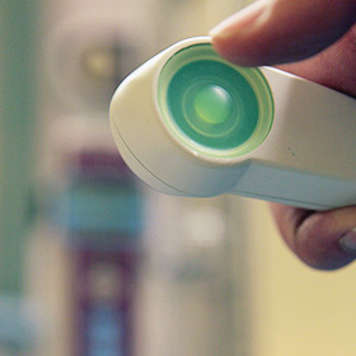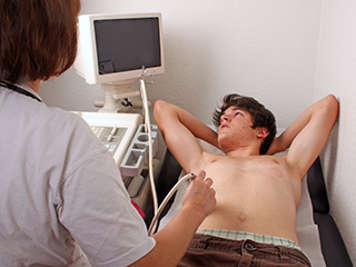As you know, a liver transplant is a major operation, one that will make a difference to the rest of your life.
It is completely normal to feel anxious or worried before your transplant surgery. Even though your team has explained what you can expect, you might still fear the unknown and have lots of questions that you might be embarrassed to ask.
Teens are usually concerned about:
- their privacy during and after surgery
- how they will cope with pain
- how well their new liver will work
- the different medical procedures they will have in the hospital
- missing out on fun with friends or falling behind at school while they recover.
Privacy during and after surgery
Before you go to the operating room (OR) you will change into a gown. During your surgery, the surgeon will open the gown to uncover only the part of your body that will be operated on. The rest of you will be covered in blankets to keep you warm.
Once your surgery is over and before you leave the OR, your nurse will make sure that you are covered with a gown and blankets. This will give you some privacy when you wake up in the critical care unit (CCU). A few days after surgery, you will be able to change into your own pyjamas if you want to.
Pain
When you wake up after your surgery, you will hurt around the area where the surgeon made the cut before placing your new liver.
One of your IVs will contain an analgesic (pain relieving medicine) that will help reduce your pain. Often a small amount of this medicine will continually run in the IV.
At different times, the nurses will ask you to describe the pain you are experiencing on a scale of 0 to 10:
- 0 means no pain.
- 10 means the worst pain you can imagine.

The nurses ask you this to check that your pain continues to be well controlled. Depending on your pain level, the transplant team may adjust the amount of medicine you are receiving.
It is important that your pain is controlled as well as possible. This will help you move about the bed more easily and help you do deep breathing exercises when you need to.
Sometimes pain medicine can make you feel queasy. If you feel this way, tell your nurse so that they can give you another medicine to control the side effects. Other times, the medicine can cause constipation. Your transplant team will monitor this as well.
There are other techniques that can help to control your pain. You can find out how you can use distraction and relaxation in the section on managing stress.
How well the new liver will work
It’s normal to be worried about how well your new liver will work after your transplant.
The team looking after you is very experienced and will help you and talk about any concerns you might have.
Complications (problems) can happen after surgery. There are also lots of things that you and your team can do to prevent complications or, if they happen, make them better.
Remember too that most patients who have a liver transplant recover quickly and have a good quality of life after their surgery. You will always need to take medications and visit your transplant team for clinic visits and bloodwork, but these steps will help keep you and your new liver healthy in the long run.
Medical procedures
Some teens might be worried about the medical tests or other procedures they will need to face right after their surgery. Having these tests right after surgery can seem overwhelming, but they are all done to make sure you are recovering as well as possible after you receive the transplant.

Ultrasound
You will have an ultrasound in the OR before you wake up and on your first and third day after surgery. Extra ultrasounds are often needed to double check how your liver is doing.
An ultrasound image is a picture created from sound waves. The person doing the ultrasound will pass a wand over your lower abdomen (belly) and an image will appear on the monitor to which the wand is connected.
Sometimes, early after surgery, the area of the incision (cut) can become sore as the ultrasound wand is passed over it. You will be able to get extra pain medicine if it feels painful.
Blood work
A lot of blood work will be done right after your surgery. At first, blood will be taken every six hours, but over time it will be taken less often, until it is done only once a day.
In the beginning, most blood samples will be taken from your arterial line, if you have one, or your central venous line.
Missing friends and fun and falling behind at school
In the hospital
Most transplant patients stay in the hospital for an average of 10 days to three weeks after their surgery. You’re free to have friends and family visit you there if they are feeling well (see below). Your nurse will let you know how many people can visit at any one time.
Remember to tell your friends not to visit you if they have a cough, cold, fever or cold sore or if they are vomiting or have diarrhea. Your immune system will be weak because of your immunosuppressant (anti-rejection) medication, so it is important that your visitors only come if they are well.

You might be concerned about missing out on the day-to-day news from your friends while you are staying in the hospital, but there are lots of ways to talk to your friends even when they are not visiting.
- If you are a patient at SickKids, your room will have a telephone. Calls within the city are free. If you’re from out of town, you can buy a calling card to call friends back home. If you are being treated at a different hospital, check what phone services are available.
- At SickKids, you can bring your computer or tablet to the hospital and use the free wi-fi. This will help you stay connected to friends on social media. If you don’t have a computer or tablet, ask the child life specialist if there is one you can use while you are admitted.
- You can use your cell phone in most places in the hospital.
If you are bringing an electronic device (such as a phone or tablet) to the hospital, remember never to leave it unattended. Ask someone you trust to keep it for you while you’re having tests outside your room.
School issues
While you are waiting for your transplant, talk to your teachers or guidance counsellors about how you are going to handle school work once you are admitted to hospital.
Give your teachers your contact details to send you assignments by email so you don’t fall too far behind!
Your school may be able to arrange for a tutor to come to your house to help you with your work. Teachers at the hospital can also help you with your homework.
At home
After your surgery, you may need to stay home from school for one to two months. This can be the hardest time to stay in touch with your friends.
For those first couple of months, it is best to hang out with one or two friends at a time and not in large groups. No matter how many friends you are with, make sure none of them have a cold, the flu or any cold sores, as these viruses can spread very easily and make you very sick. Good hand washing is another important way to protect yourself.
While you’re at home, you can keep in touch with your friends through calls, text, email or social media.
If you’re going out with friends during this time, do not go to concerts, big sporting events, movie theatres on the weekends or anywhere you will be close to a lot of strangers. A daytime movie during the week is okay if the movie theatre is quiet and you can sit away from most people.
Even when you start to mix with larger groups of people again, you must still avoid anyone who is sick and make sure you wash your hands often, especially before you eat.







